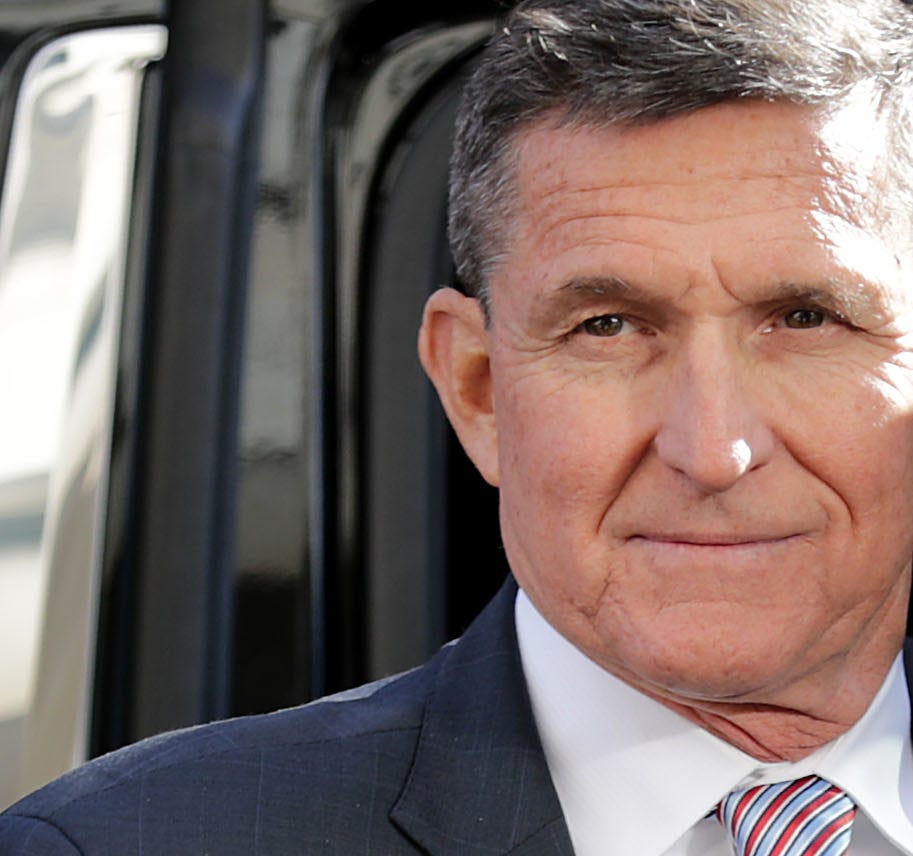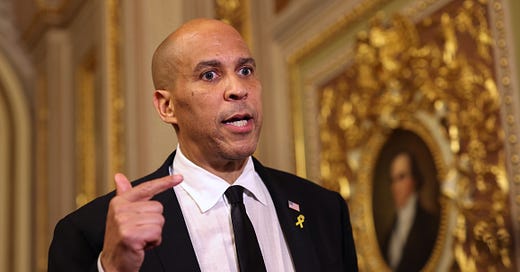
Flynn Dismissal: Bill Barr Thumbs His Nose at Justice
Mike Flynn admitted lying to investigators. But the attorney general puts Trump above truth.

Attorney General Bill Barr’s decision to throw his colleagues under the bus by moving to dismiss the criminal charges against former national security advisor Mike Flynn—who already pleaded guilty—is a doozy. Barr’s request has immediately been slayed in cyberspace for its political overtones, and for good reason.
Just three months ago, recall, the Department of Justice overrode a sentencing recommendation for Roger Stone, another Trump ally indicted as a result of Robert Mueller’s investigation of Russian interference in the last presidential election. With today’s announcement about the Flynn case, Barr has unabashedly destroyed any pretense of independent judgment on behalf of the DOJ. The federal law enforcement apparatus serves at the political whims and pleasures of the president. So much for DOJ’s stated mission of “ensur[ing] fair and impartial administration of justice for all Americans.”
Of course, Flynn’s fate is hardly sealed. The U.S. district judge who accepted his guilty pleas for lying to federal officials about his contacts with Russian operatives must sign off on Barr’s request. The fiercely independent Judge Emmet Sullivan already called Flynn’s crime “a very serious offense” at a December 18 hearing, and told him that “arguably, you sold your country out.” Sullivan added, “I’m not hiding my disgust, my disdain, for this criminal offense,” and refused to rule out jail time for Flynn.
Importantly, Judge Sullivan is also steeped in the rule of law—and the reason we have it in the first place.
Consider the law that makes it a crime to lie to the FBI, 18 U.S.C. § 1001. Flynn basically admitted that, to borrow the words of the statute, he “knowingly and willfully falsifie[d], conceal[ed], or cover[ed] up by any trick, scheme, or device a material fact” or made a “materially false, fictitious, or fraudulent statement or representation” to FBI agents who were trying to get to the bottom of Russia’s attacks on America’s presidential election.
To be specific, Flynn admitted (with the aid of counsel) that, during an interview with the FBI in the White House on January 24, 2017, he
falsely stated that he did not ask Russia’s Ambassador to the United States . . . to refrain from escalating the situation in response to sanctions that the United States had imposed against Russia. FLYNN also falsely stated that he did not remember a follow-up conversation in which the Russian Ambassador stated that Russia had chosen to moderate its response to those sanctions as a result of FLYNN’s request.
In today’s filing, DOJ does not deny that Flynn lied. It instead claims that “the Government is not persuaded that the January 24, 2017 interview was conducted with a legitimate investigative basis and therefore does not believe Mr. Flynn’s statements were material even if untrue.”
“Materiality” is an important concept in American law that finds its way into the rules of evidence, corporate and securities law, contract law, patent law, and even civil procedural rules. The notion is a commonsensical one: not all facts matter. To take a simple example, if a yellow car runs a red light and hits a red car, it is not material that the second car was painted red. But it is material that the traffic light was red. Only if the light was red is the yellow car’s driver at fault, thereby empowering a court of law to order payment of money damages to the red car’s driver.
In Flynn’s case, Robert Mueller’s prosecutorial team believed that Flynn’s
false statements and omissions impeded and otherwise had a material impact on the FBI’s ongoing investigation into the existence of any links or coordination between individuals associated with the Campaign and Russia’s efforts to interfere with the 2016 presidential election.
The lies weren’t about what Flynn had for breakfast that day. They went to the heart of Mueller’s mission, as authorized by then-Deputy Attorney General Rod Rosenstein, to look into established interference by the Russians for the benefit of the Trump campaign.
Keep in mind that this last bit—that Russia interfered, that Trump benefited, and that his campaign was aware of the goodies flowing from Vladimir Putin & Co.—are established facts. But now, Bill Barr’s DOJ is taking the position that a sitting national security advisor’s lies about his contacts with Russia are not relevant to anything that really matters? That his lies are no big deal? Or that, at a minimum, they not worth using the power of the U.S. government to hold Flynn accountable for his confessed lawbreaking?
This is, in fact, a very big deal.
Society’s overwhelming rejection of lying to government officials stretches across countless cultures and goes back at least to the Old Testament. The idea is that witnesses must give true and accurate answers in connection with legal proceedings so that laws can be enforced fairly and meaningfully. Only if laws are enforced fairly and meaningfully will people bother to abide by them. Incentivizing witnesses to tell the truth fosters a civilized society based on fair rules that are fairly applied based on facts, not politics. Perjury law is also tethered to a core value system that most of us hope to teach our children. If people don’t abide by laws, society falls into chaos.
Perjury first found its way into English statutory law in 1563, when it was defined as “a deliberate lie” in a courtroom that is punishable as a crime. The modern “materiality” component ensures that little white lies don’t land people in jail; only the big ones that really matter do.
Bill Barr’s shrugging off of Flynn’s established lying to Barr’s own FBI—and his nose-thumbing at his longtime friend and former colleague Robert Mueller’s careful work as a prosecutor with regulatory independence from Donald Trump—is a swipe at the heart of the rule of law in America.
Once again, this administration’s self-dealing means that it now falls to the judicial system to remind us of the most fundamental of our collective values in the age of Trump.










